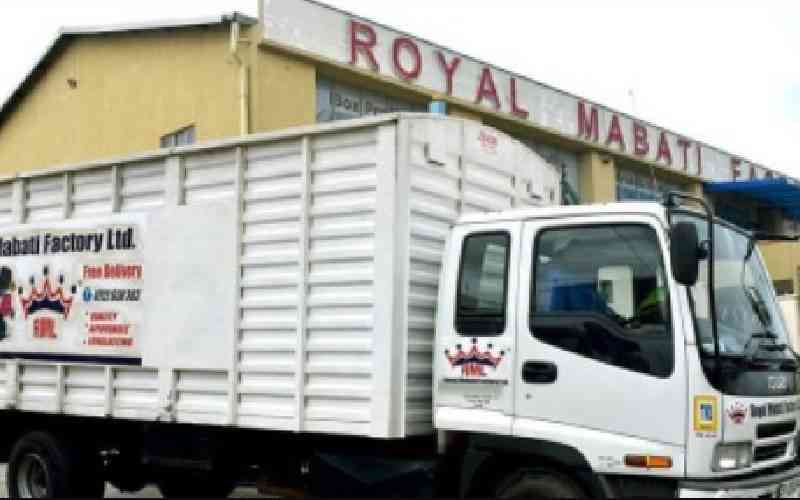By John Njiraini
The move by Safaricom to introduce low denomination scratch cards left many people dumbfounded.
If debate that followed on forums like Facebook and Twitter is anything to go by, most people did not see the logic to introduce the airtime vouchers.
But to the mobile services operator, this was an opportunity to grow its revenue from the low-end of the market, a segment that many Kenyans fall particularly during this tough economic times.
"We are simply responding to the mass market where we feel most of the revenue is," said Mr Peter Arina, Safaricom chief commercial officer during the launch of the cards.
He said the need to introduce the ultra-low airtime vouchers was motivated by the need to fulfil changing needs of subscribers who had asked for them and research that pointed to increased low-unit usage.
By taking the decision, Safaricom was not venturing into an entirely new territory but was joining a retinue of companies that have long ventured into the low-end of the market popularly known as the kadogo economy in efforts to address the needs those in the bottom of the consumer pyramid.
Indeed, with most Kenyans, about 56 per cent according to Government statistics, living in the poverty bracket and many of them, about 70 per cent, in urban areas living in slums, companies have woken up to the reality that this is a lucrative market.
Most have shed the arrogance they displayed a few ago when they used to say the poor are not their target customers and cannot afford their products or services.
Today, it is possible to walk into most shops in low income estates and realise that no basic products ranging from cooking fat, salt, sugar, milk, bread, maize mill, tea leaves to margarine ais valued at more than Sh50.
Daily needs
"We need products that meet our daily needs," said Mr Wycliffe Onyancha, a cobbler in Majengo slums.
Onyancha, who makes Sh300 on averages day, says that he needs products that fulfill his needs as they arise and accords praises for companies that have launched products to address this phenomenon.
And they are many. Besides Safaricom with its new low-priced airtime vouchers, others are Unilever, Bidco, Kapa Oil Refineries, Ketepa Tea, among others.
But as the crazy of the kadogo economy become deep rooted in the country, the big question is who is the real winner between companies and their targeted customers.
While companies are packaging their marketing strategies on the premise that this is a win-win partnership, what is not obvious to those targeted by these products is that companies are using sales gimmicks to make maximum profits.
According to analysts, customers are being hoodwinked to believe that their needs are being addressed, while in actually fact they end up spending more, thus earning the companies more revenues.
"These companies are out to make money and they will look for ways to ‘milk’ both the rich and the poor," said a researcher at a leading company manufacturer of fast moving goods.
Paying more
It is not rare to see how people living in slums are paying more for products they buy daily compared to their rich counterparts living in posh neighbourhoods buying products packaged in large quantities.
Simple arithmetic shows that a consumer buying 100 grams of cooking fat at Sh10 daily will spend Sh300 a month.
A lady who buys 10 grams of body lotion for Sh10 everyday ends up spending Sh300 a month.
For the rich, who are on the top bracket of the consumer pyramid and prefer to do their shopping once a month and buy products packaged in large quantities, end up saving a lot of money.
If a rich person buys 2kg of cooking fat that is bound to last a month or more, they spend Sh255. By buying 50 grams of baby lotion they pay Sh115.
Based on this fact and realising that they can benefit from the masses that live in low-income areas, companies are making a kill by packaging their products as affordable alternatives for the poor.
For instance, if a oil manufaturer sells 100 grams of cooking fat to about one million people living a low income area everyday, the company will rake in Sh30 million a month.
If the company sells 2kg of cooking fat to about 50,000 people living in high income neighbourhoods a month, it will rake in a mere Sh12.7 million.
"The profits are in the low end market where people are more concerned about the price of products and care less about brand loyalty unlike in the high end of the market," said the researcher.
He adds that in targeting the poor, companies even end up saving on the marketing and advertising budgets.
Basic products
Although a person like Onyancha admits he could be spending a lot of money on basic products that are bought based on need, he says that his earnings cannot allow him to buy products package in larger quantities that can last much longer and save him some money.
"The little money I make everyday only allows me to buy what I need," he says.
Because of him, and millions others, the kadogo economy will continue to thrive as more companies target the low end of the market.
 The Standard Group Plc is a multi-media organization with investments in media
platforms spanning newspaper print operations, television, radio broadcasting,
digital and online services. The Standard Group is recognized as a leading
multi-media house in Kenya with a key influence in matters of national and
international interest.
The Standard Group Plc is a multi-media organization with investments in media
platforms spanning newspaper print operations, television, radio broadcasting,
digital and online services. The Standard Group is recognized as a leading
multi-media house in Kenya with a key influence in matters of national and
international interest.
 The Standard Group Plc is a multi-media organization with investments in media
platforms spanning newspaper print operations, television, radio broadcasting,
digital and online services. The Standard Group is recognized as a leading
multi-media house in Kenya with a key influence in matters of national and
international interest.
The Standard Group Plc is a multi-media organization with investments in media
platforms spanning newspaper print operations, television, radio broadcasting,
digital and online services. The Standard Group is recognized as a leading
multi-media house in Kenya with a key influence in matters of national and
international interest.









